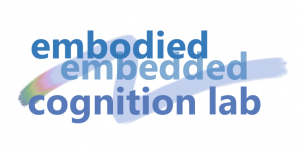 The Massey University Embodied/Embedded Cognition Lab is run by Stephen Hill (s.r.hill@massey.ac.nz). I have a broad interest in environment-cognition relationships including the effects of environmental stressors (such as mild hypoxia, hypohydration, and poor sleep) on cognition, climate change and psychology, and the effects of social isolation on older people’s cognition. However, my main interest is embodied cognitive science. At the moment I’m particularly interested in studying memory from a distributed cognition perspective.
The Massey University Embodied/Embedded Cognition Lab is run by Stephen Hill (s.r.hill@massey.ac.nz). I have a broad interest in environment-cognition relationships including the effects of environmental stressors (such as mild hypoxia, hypohydration, and poor sleep) on cognition, climate change and psychology, and the effects of social isolation on older people’s cognition. However, my main interest is embodied cognitive science. At the moment I’m particularly interested in studying memory from a distributed cognition perspective.
Embodied/Embedded Cognition: What is it?
Broadly speaking, the aim of Embodied/Embedded Cognition research and theory is to better understand how cognition is enabled by the dynamic interplay of neural, bodily, and environmental resources. More provocatively I’m interested in scientifically exploring the idea that, as Andy Clark and Dave Chalmers famously put it way back in 1998, “cognitive processes ain’t (all) in the head!” This is the (in)famous Extended Mind hypothesis that philosophers of mind have spent the last couple of decades arguing about. Psychologists, for the most part, haven’t really engaged with it but I think we should.
Overviews by two Karls
Here is a great introduction to embodiment by user interface designer Karl Fast. Make sure you watch more than the first bit (up to 16:20) where he surveys the problematic* ‘not really embodied cognition’ work practised by a number of psychologists.
* = often not replicable
And here the mighty Karl Friston (he of the predictive processing revolution) muses on embodied cognition …
Reference
Clark, A. & Chalmers, D. (1998). The extended mind. Analysis, 58, 7-19.
Related Publications
Hill, S. (2009). Stretching detection: The unique selling point of embodied cognitive science. In T. Teo, P. Stenner, A. Rutherford, E. Park, & C. Baerveldt (Eds.), Varieties of theoretical psychology: International philosophical and practical concerns (pp. 125-134). Concord, Canada: Captus. (Preprint doi:10.31219/osf.io/94djy)
Hill, S. (2006). Are humans mobot minded? Some implications of embodied cognitive science for cognitive psychology. In C. M. Fletcher-Flinn & G. M. Haberman (Eds.), Cognition, language, and development: Perspectives from New Zealand (pp. 257-269). Brisbane, Australia: Australian Academic Press. (Preprint doi:10.31219/osf.io/3xbtc)
